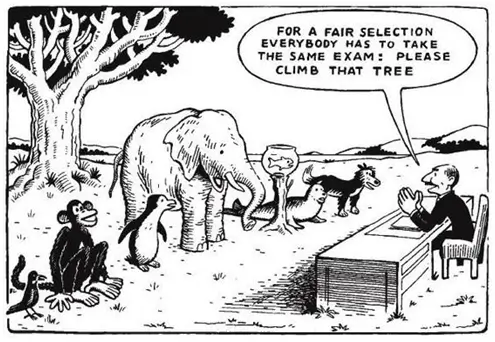Africanised Assessment Practices in Education – Key Concepts and Applications
Question 1 [10 marks]
Choose the correct answer from the options provided. Write down only the number and the corresponding letter next to it (e.g. 1.1 E).
- This is one of the critical concepts in Africanised assessment practice.
- Individualism
- Efficiency
- Competitiveness
- Ubuntu
- How can teachers integrate indigenous knowledge into assessment planning?
- By excluding traditional practices
- By adapting assessment materials to reflect learners’ cultural backgrounds
- By using only Western methodologies
- By focusing on competitive learning
- What role does ICT play in modern assessments?
- It limits the scope of learner evaluation
- It replaces all other assessment methods
- It helps deliver and construct assessment tasks
- It prevents differentiated assessment
- Which of the following is a benefit of applying the spirit of Ubuntu in assessment?
- Learners feel supported and understood
- Increased competitiveness
- Focus on individualism
- Exclusion of social diversity
- Differentiated assessment aims to .
- standardise all assessments
- allow learners with different abilities to demonstrate their knowledge
- focus on one type of intelligence
- exclude technology from the classroom
- In multi-grade classrooms, what is a crucial consideration for assessment?
- Uniform assessment tasks across grades
- Only oral assessments
- Varied assessment methods are suitable for different grade levels
- Using the same textbooks for all learners
- Which of the following does NOT apply to multicultural assessments?
- Adapt assessments to different cultural contexts
- Promote one dominant culture in assessments
- Recognise the diversity of learners
- Consider learners’ backgrounds
- How can teachers ensure that assessments are fair in a multicultural school?
- By using the same tasks for all learners
- By avoiding differentiated tasks
- By focusing only on content from the dominant culture
- By adapting tasks to be culturally relevant
- What is the primary purpose of feedback in assessments?
- To criticise learners
- To help learners understand their progress and areas for improvement
- To compare learners with one another
- To focus on test scores only
- Which of the following does NOT promote positive learner engagement?
- Punishing learners for incorrect answers
- Offering challenging and relevant tasks
- Encouraging intrinsic motivation
- Creating a caring classroom environment
Question 2 [15 marks]
- Briefly explain your understanding of the concepts below, and state their importance as each relates to the assessment of learners in your subject:
- Self-assessment
- Fairness
- Constructive feedback
- Assessment evaluation
- Authentic assessment (5×3=15)
Question 3 [20 marks]
Look at the picture below, and answer the questions which follow.

Accessed online at https://marquetteeducator.wordpress.com/2012/07/12/climbthattree/
- What type of assessment is depicted in the cartoon, who grades it, and why is it administered in South African schools? (4)
- Interpret what each animal could represent within a classroom context and provide two (2) examples explaining each. (4)
- Defend the role of teaching and assessment differentiation in this classroom. (4)
- Critique how this cartoon depicts the teacher’s assessment role, as suggested by Vygotsky’s ZPD and scaffolding within the classroom context. (8)
Question 4 [15 marks]
- Reflect on your own teaching practice or classroom observations. Critically evaluate the practices that Skinner and Pitzer (2012) suggest in promoting positive learner engagement. Use examples from your experiences to demonstrate how these strategies can be applied in assessing learners.
- Provide authentic academic tasks.
- View learners’ misunderstandings and failures as opportunities for them to learn.
- Promote learner engagement in assessment.
- Promote learners’ intrinsic motivation.
- Create a classroom environment that fosters caring relationships. (5×3=15)
Curriculum Design Answers: Experts Answer on Above Essay Questions
Brief explanation and importance in assessment
Self assessment is important as it helps in developing responsibility and metacognitive skills because learners are required to reflect on their own work.
Fairness is important as it ensures equity and biased judgement which is crucial in promoting positive learning.
Constructive feedback that is important to help learners understand their mistakes and provide a basis for improvement.
Assessment evaluation is also important as it helps in improving teaching strategies.
Authentic assessments are important as they reflect the real world situation and improve relevance and learner engagement.
Type of assessment depicted: The type of assessment that is depicted in the given image is standardised one which indicates one size fits all tests.
Animals in the classroom context: Monkey, elephant and fish whereby monkey is excellent in the task and Elephant has different strength but not good at the given task, and fish is a completely different learner excluded by inappropriate assessment methods.
Role of differentiation: Role of differentiation is significant as it ensures the task meets the diverse needs and takes into consideration the strength point of different intelligences.
Critique: In the given article, the cartoon indicates that there is no adaptation and the teacher failed to guide learners
| Disclaimer: This answer is a model for study and reference purposes only. Please do not submit it as your own work. |
Want Detailed Answers with References?
Check Curriculum Studies Sample Written by Experts
Related answer
Culturally Responsive Curriculum Planning in South Africa
Grade 7 EMS Bloom’s Revised Assessment & D-CAPS Reflection
Carl’s Curriculum Model & South African Historical Development
Classroom Routine Assignment: Identification, ‘I Do’ Script & Gaps
AI in IEB Business Studies: Business Report Assessment
CAPS vs IEB Curriculum Comparison & South African Education
Curriculum and Knowledge-Building as Social Practice
Improving South African Education Through Comparative Study
Reflective vs Effective Teaching in Grade 1 Maths
Assessment Types, Learner Progression & Ubuntu



